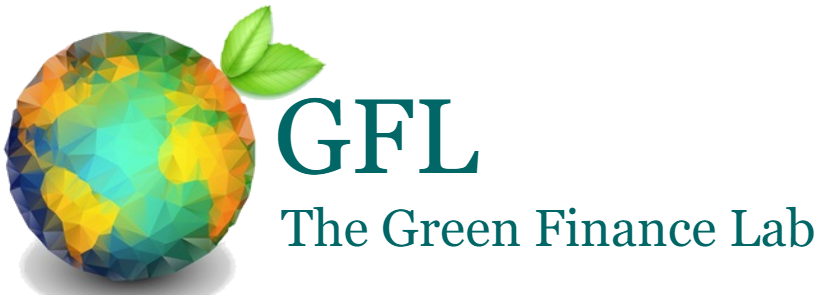SRI STRATEGIES TO BOOST PROFITABILITY AND COMPETITIVENESS
UNDERSTANDING OF ESG RISKS ALLOWS COMPANIES TO
CONVERT THEM INTO OPPORTUNITIES
A ‘quiet revolution’ is underway in the global financial system as its leaders wrestle with the implications of global sustainability. Expectations from clients and regulators are climbing steadily, causing financial institutions to rethink current operating practices, and adopt longer term, more forward-thinking strategies. This trend is set to continue as sustainability issues translate into ever more substantive risks and opportunities.
The GFL conducts research on mainstreaming environmental and social scenarios into financial risk analysis; measuring ‘asset stranding’ effects under future technology transitions; understanding the role of the financial system in financing a sustainable, zero carbon economy; science-based measures to quantify non-financial outcomes of investment; innovative financing of sustainable infrastructure; and consumer demand for sustainable investment funds. Such long-term oriented investment approach, which integrates ESG factors in the research, analysis and selection process of securities within an investment portfolio, is defined as Sustainable and Responsible Investment (”SRI”). It combines fundamental analysis and engagement with an evaluation of ESG factors in order to better capture long-term returns for investors, and to benefit society by influencing the behaviour of companies.
We know that a better understanding of ESG risks allows companies to convert them into opportunities.
Discover below the most relevant SRI strategies that may enable companies to achieve positive impact, relaunch competitiveness and boost profitability.
BEST-IN-CLASS
An approach where leading or best-performing investments within a universe, category, or class are selected or weighted based on ESG criteria. This approach involves the selection or weighting of the best performing or most improved companies or assets as identified by ESG analysis, within a defined investment universe. This approach includes Best-in-Class, best-in-universe, and best-effort.
ESG INTEGRATION
The explicit inclusion by asset managers of ESG risks and opportunities into traditional financial analysis and investment decisions based on a systematic process and appropriate research sources. This type covers explicit consideration of ESG factors alongside financial factors in the mainstream analysis of investments. The integration process focuses on the potential impact of ESG issues on company financials (positive and negative), which in turn may affect the investment decision.
EXCLUSIONS
An approach that excludes specific investments or classes of investment from the investible universe such as companies, sectors, or countries. This approach systematically excludes companies, sectors, or countries from the permissible investment universe if involved in certain activities based on specific criteria. Common criteria include weapons, pornography, tobacco and animal testing. Exclusions can be applied at individual fund or mandate level, but increasingly also at asset manager or asset owner level, across the entire product range of assets. This approach is also referred to as ethical or values based exclusions, as exclusion criteria are typically based on the choices made by asset managers or asset owners.
ENGAGEMENT AND VOTING
Engagement activities and active ownership through voting of shares and engagement with companies on ESG matters. This is a long-term process, seeking to influence behaviour or increase disclosure. Engagement and voting on corporate governance only is necessary, but not sufficient to be counted in this strategy.
Sustainable Development Goals ("SDG")
How will they impact your business?
With 17 Global Goals to understand, how do you know where to start?
Businesses contribution to the Goals will be key to their achievement. Each government will have its own set of priorities which will drive the action it needs to take. You'll want your business to align with the SDGs so that it makes an impact that helps, not hinders, a country to achieve its goals. There's much to consider not only for the country or countries you currently operate in, but also your supply chain and your future strategy to enter new markets and territories too.
Getting to grips with the targets and indicators that sit behind each goal is fundamental. You will want to understand what impact your business has on each and identify market opportunities too. When agreeing your strategy, you will want to know which initiatives and options will make the biggest positive difference or shrink a negative impact the most. You'll want to know where to direct your attention and investment.
Discover below how GFL financial products will support you on the SDG journey.
Creating a strategy for a better world.
In our largest analysis of published reporting on the United Nations’ Sustainable Development Goals (SDGs) to date, we explored over 1,000 company reports to find out how businesses are engaging with the SDGs in Africa, Asia and South America. The results suggest that, while there is a general acknowledgement of the importance of the goals, there is room for more concrete action to take place in support of the SDGs if the SDGs are to be achieved by 2030.
The GFL is committed to helping companies to engage with and embed the SDGs into strategy and operations. With that in mind, we took a look at business engagement with the SDGs, integration into strategy and top level support in order to promote the best strategies through our innovative products.
GFL Enterprise Support Programme
Our Enterprise Support Programme
is collaborative.
GFL Enterprise Support Programme follows the logic that socially inclusive and environmentally sustainable innovation is generated through collaboration. At GFL, we are convinced that true value is created when diverse stakeholders join together to share knowledge, expertise and a passion for generating market-based solutions with environmental, social and economic benefits.
Our GFL Enterprise Support Programme catalyses the innovative capacities of entrepreneurship and equip small and growing enterprises with the tools and resources to start-up and scale-up. We actively build a collaborative ecosystem – through prototyping labs, events and research – that mobilises financial institutions, policy-makers, NGOs and other key stakeholders to multiply the contributions of eco-inclusive entrepreneurship to sustainable development.
1. SECTOR INSIGHTS
Gain sector-specific insights and learn about sustainable and responsible entrepreneurship.
2. STEP-BY-STEP GUIDANCE
Receive in-depth guidance to start-up an enterprise or to adopt an SDG target-based approach.
3. CASE STUDIES
Gain inspiration from case studies of successful sustainable and responsible business models.
4. PARTNERSHIP BUILDING
Connect with like-minded peers and experienced enterprises to build mutual beneficial partnerships.

JOSHUA GRINBERG
GFL Enterprise Support Programme Specialist
Our GFL Enterprise Support Programme specialist is available to consult and answer questions about the programme, our online matchmaking connect platform and more. Please contact us if you are interested in joining in the GFL Enterprise Support Programme process.








